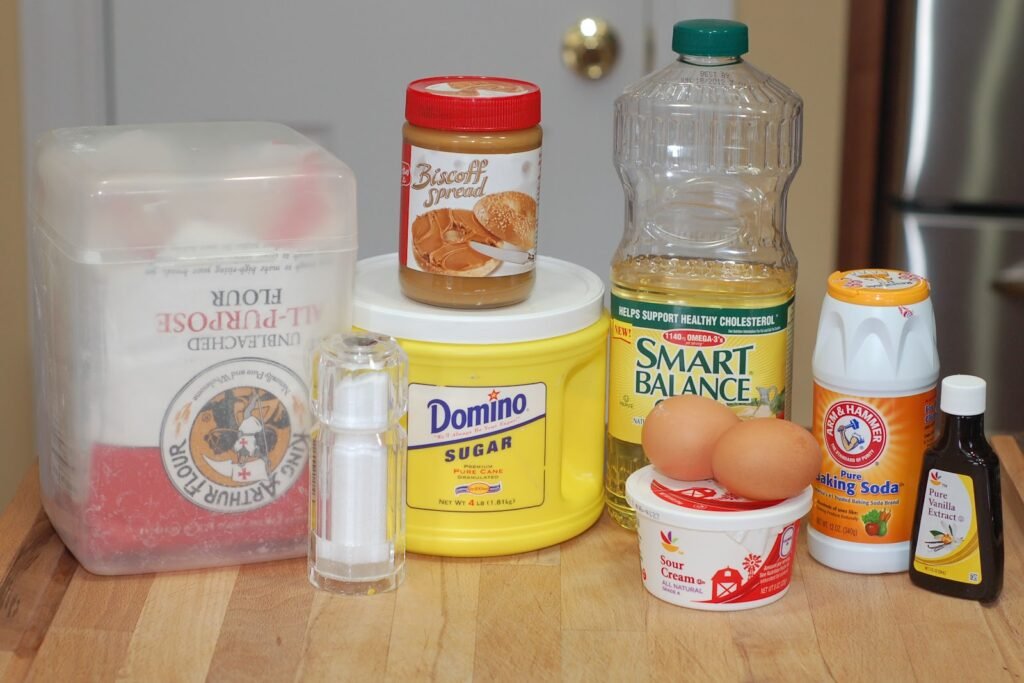Are Salmon Fillets Acidic? Salmon Fillets and Acid Reflux
Are Salmon Fillets Acidic? Salmon Fillets and Acid Reflux
Salmon is a nutrient-packed fish celebrated for its high omega-3 fatty acids and versatile preparation methods. For individuals managing acid reflux or aiming to balance their dietary pH, the question arises: are salmon fillets acidic? Understanding how salmon affects acidity and digestion is essential for incorporating it into a reflux-friendly diet.
Salmon fillets are mildly acidic in their natural state, but they offer numerous health benefits that can offset their acidity when consumed in moderation. This flavorful fish is rich in essential nutrients that promote digestive health and reduce inflammation, making it a valuable addition to most diets. In this article, we’ll dive into the pH properties of salmon fillets, their relationship with acid reflux, and the best ways to prepare them to minimize reflux symptoms.
Understanding Acidity and Alkalinity in Foods
What Determines a Food’s Acidity or Alkalinity?
The acidity or alkalinity of food is measured on the pH scale, which ranges from 0 (highly acidic) to 14 (highly alkaline). Foods with a pH below 7 are classified as acidic, while those above 7 are alkaline. However, the metabolic effect of a food—how it behaves once digested—often plays a more significant role in the body’s pH balance.
How Acidic Foods Impact Acid Reflux?
Acidic foods can exacerbate acid reflux by increasing stomach acid production, leading to heartburn, discomfort, and esophageal irritation. Reducing intake of highly acidic or fatty foods and replacing them with milder options can help manage symptoms.
Why Some Acidic Foods Are Still Beneficial?
Not all acidic foods are harmful. Many, like salmon, are rich in essential nutrients and anti-inflammatory compounds that promote overall health. The key is balancing these foods with alkaline ingredients to maintain a healthy pH.
Author Tip: 7-Day Meal Plan For Gastritis
Are Salmon Fillets Acidic or Alkaline?
pH of Salmon Fillets
Fresh salmon fillets have a slightly acidic pH, typically ranging from 5.3 to 6.5. While this classifies salmon as mildly acidic, it is significantly less acidic than many other protein sources, such as red meat.
Metabolic Effect of Salmon on the Body
Despite its natural acidity, salmon has a neutral to slightly alkalizing effect on the body due to its high omega-3 fatty acid content. These healthy fats help reduce inflammation, including in the esophagus, which can alleviate acid reflux symptoms.
Does Salmon Trigger Acid Reflux?
Salmon is unlikely to trigger acid reflux when prepared in a healthy manner. Grilled, baked, or steamed salmon fillets are less likely to irritate the stomach compared to fried or heavily seasoned preparations. However, pairing salmon with acidic sauces, like lemon or vinegar-based marinades, can aggravate reflux symptoms.
Nutritional Benefits of Salmon Fillets
Rich Source of Omega-3 Fatty Acids
Salmon is renowned for its high omega-3 fatty acid content, which supports heart health, reduces inflammation, and promotes brain function. These anti-inflammatory properties are particularly beneficial for individuals with acid reflux, as they help soothe the esophagus and digestive tract.
High-Quality Protein
Each serving of salmon provides a complete protein profile, containing all essential amino acids needed for muscle repair and growth. Protein is also vital for maintaining digestive health and overall body function.
Packed with Vitamins and Minerals
Salmon is an excellent source of vitamin D, vitamin B12, and selenium. These nutrients play key roles in strengthening the immune system, promoting bone health, and supporting metabolic functions.
Benefits of Salmon for Acid Reflux Sufferers
Anti-Inflammatory Effects
Omega-3 fatty acids in salmon help reduce inflammation in the esophagus caused by acid reflux. This can minimize discomfort and support long-term digestive health.
Low in Saturated Fat
Unlike fatty cuts of beef or pork, salmon is low in saturated fat. This makes it a safer protein choice for individuals prone to acid reflux, as high-fat foods can relax the lower esophageal sphincter (LES) and worsen symptoms.
Easy Digestibility
Salmon’s tender texture and high nutrient density make it easy to digest, reducing the likelihood of triggering acid reflux compared to other protein sources.
How to Prepare Salmon for a Reflux-Friendly Diet?
Best Cooking Methods
- Grilling: Lightly season salmon with herbs and grill it for a smoky flavor without added fats.
- Baking: Bake salmon with alkaline vegetables like zucchini or spinach to create a balanced, reflux-friendly meal.
- Steaming: Steam salmon for a light, oil-free preparation that preserves its natural flavor and nutrients.
Ingredients to Avoid
Avoid preparing salmon with acidic ingredients like lemon juice, tomato-based sauces, or vinegar marinades, as these can exacerbate reflux symptoms. Instead, opt for alkaline herbs and spices such as dill, basil, or parsley.
Pairing Salmon with Alkaline Foods
Balance salmon’s slight acidity by serving it with alkaline-rich sides like quinoa, steamed broccoli, or sweet potatoes. This helps neutralize the overall meal and reduces the risk of reflux.
Comparing Salmon to Other Protein Sources
Salmon vs. Red Meat
Salmon is far less acidic and easier to digest than red meat, making it a better choice for acid reflux sufferers. Red meat’s high fat content and acid-forming properties can trigger reflux symptoms, whereas salmon provides lean protein and healthy fats.
Salmon vs. Chicken
While chicken is a neutral-to-slightly-acidic protein, it lacks the omega-3 fatty acids found in salmon. Both are good options, but salmon offers additional anti-inflammatory benefits.
Salmon vs. Plant-Based Proteins
Plant-based proteins like lentils, chickpeas, and tofu are alkaline-forming and excellent for acid reflux. However, salmon offers unique nutrients, like vitamin D and omega-3s, which are harder to obtain from plant sources.
Author Tip: 7 Kinds of Foods to Avoid with GERD
Common Myths About Salmon and Acidity
Is All Salmon Acidic?
While fresh salmon fillets are mildly acidic, smoked or canned salmon may have added ingredients that increase acidity. Always check labels and opt for fresh, unprocessed salmon.
Does Salmon Always Cause Acid Reflux?
No, salmon is generally well-tolerated when prepared healthily. Acid reflux may occur if salmon is fried, heavily seasoned, or paired with acidic sauces.
Is Farmed Salmon Less Healthy?
Farmed salmon may contain higher fat levels and fewer omega-3s compared to wild-caught salmon. Whenever possible, choose wild-caught salmon for its superior nutritional profile and lower fat content.
Final Thoughts on Salmon Fillets and Acid Reflux
Salmon fillets are a nutrient-rich, mildly acidic food that can be a valuable part of a reflux-friendly diet. Their high omega-3 content, low saturated fat levels, and anti-inflammatory properties make them a top choice for individuals seeking digestive relief. By preparing salmon with reflux-friendly methods and pairing it with alkaline sides, you can enjoy its health benefits without aggravating acid reflux symptoms.
FAQs
- Are salmon fillets acidic?
Yes, salmon fillets are mildly acidic with a pH between 5.3 and 6.5. - Is salmon good for acid reflux?
Yes, salmon is generally good for acid reflux when prepared healthily, as it is low in saturated fat and contains anti-inflammatory omega-3s. - How should I cook salmon to avoid reflux?
Grilling, baking, or steaming salmon without acidic marinades is the best way to prepare it for acid reflux sufferers. - Can smoked salmon trigger acid reflux?
Smoked salmon may contain added salts and seasonings that could aggravate acid reflux. Fresh salmon is a better option. - What are good sides to serve with salmon for acid reflux?
Alkaline sides like quinoa, steamed broccoli, and spinach pair well with salmon to create a reflux-friendly meal.
Better Than S’Mores Mini Cupcakes

I have been wanting to try Biscoff cupcakes for that past week. But I wanted to see what would happen if I tried to turn them into s’mores. The Biscoff is a bit sweeter than a graham cracker, but I though if I used a dark chocolate ganache to fill them, it might balance out the sweetness. What?? Me, make something less sweet?? Ask anyone who knows me and they would think something was wrong. But have no fear, sometimes it’s all worth it in the end. And these absolutely were. Topped with a marshmallow fluff frosting, these puppies came out better than expected, better than a s’mores!

Don’t mind my upside down flour bag. It had a hole in the bottom, so I had put it that way, otherwise that kitchen would look like a snowstorm had passed through.

| For the ganache filling |

filled cupcakes
At this point feel free to take any defect cupcake and pop it into your mouth. It is for quality control purposes only. Since it was late at night when I made the frosting, I forgot to take any pictures.
Of course before I went to bed I had to try one and gave one to my husband to try so I wouldn’t feel so guilty. Oh god, they were delicious. I am glad I made them bite size, the blend of tastes it just perfect. Unfortunately, that just means I will eat more.
Better Than S’Mores Mini Cupcakes
by The Sweet Chick
Prep Time: 20-30 minutes
Cook Time: 10-15 minutes
Keywords: bake dessert biscoff marshmallow fluff chocolate ganache cupcake
Ingredients (24 mini cupcakes)
For the Biscoff Cupcakes
- 1 cup all-purpose flour
- 1 cup granulated sugar
- 1/2 teaspoon kosher salt
- 1/2 teaspoon baking soda
- 1/2 cup canola oil
- 1/2 cup sour cream
- 1/2 cup Biscoff spread
- 2 large eggs
- 2 teaspoons pure vanilla extract
For the Chocolate Ganache Filling
- 12 ounces chocolate, chopped into small pieces (I used a 3.5oz bar of Lindt dark chocolate and about 3/4 of a 12 oz bag of semi-sweet chocolate chips)
- 1 cup heavy cream
For the Marshmallow Fluff Frosting
- 1/2 stick butter, softened
- 2 cups marshmallow fluff
- 2 cups powdered sugar
- 1 teaspoon vanilla
- 1 tablespoon Wilton meringue powder
- 2-3 tablespoons milk
Instructions
For the Biscoff Cupcakes
Preheat the oven to 350º F and fill muffin tin with cupcake liners.
Place flour, sugar, salt and baking soda into a large bowl, mix to combine. Set aside.
In a stand mixer or using a hand mixer, place oil, sour cream, Biscoff spread, eggs and vanilla into the bowl and mix on medium speed until well incorporated. Slowly add dry ingredients and mix thoroughly, about 30 seconds. Spoon batter into prepared mini cupcake liners about 3/4 full. Bake for 10-15 or until toothpick inserted in center comes out dry. Remove and let cool completely.
(For regular sized cupcakes, bake 18-22 minutes).
Recipe by healthyfoodforliving.com/recipes
For the Chocolate Ganache Filling
Place chocolate pieces in a large bowl.
Heat heavy cream on medium high until it comes to a boil. Remove from heat and immediately pour cream over chocolate and stir until completely mixed and glossy.
Allow ganache to cool. The longer you allow the ganache to cool, the thicker it will set. You can place it in the fridge to cool faster. The ganache needs to be completely cooled before piping it in the cupcakes.
While the ganache is cooling cut a hole in the middle of each cupcake and scoop out the center (not all the way to the bottom). I used a vegetable peeler, but you can also try a apple corer.
With a frosting piping bag or a plastic freezer bag with tip cut off, pipe the ganache filling into each cupcake and place back in the fridge.
Recipe by https://www.healthyfoodforliving.com/recipes/
For the Marshmallow Fluff Frosting
In a stand up mixer or using a hand mixer, blend butter and marshmallow fluff until smooth.
Sift in confectioners’ sugar and meringue powder and beat on low speed.
Add vanilla and milk and increase speed to high. Beat for 1 minute.
Using a frosting piping bag and your favorite tip, frost each cupcake and place back in fridge to set.
Recipe by The Sweet Chick
